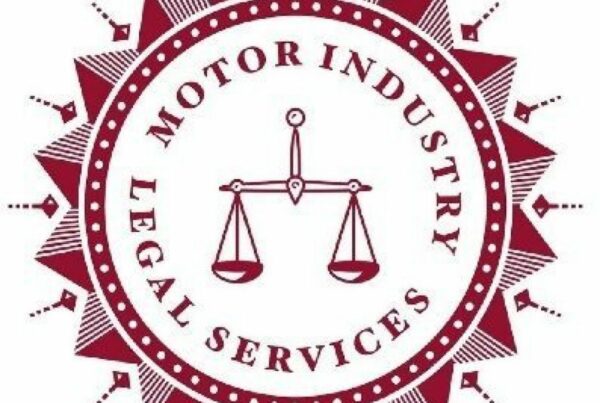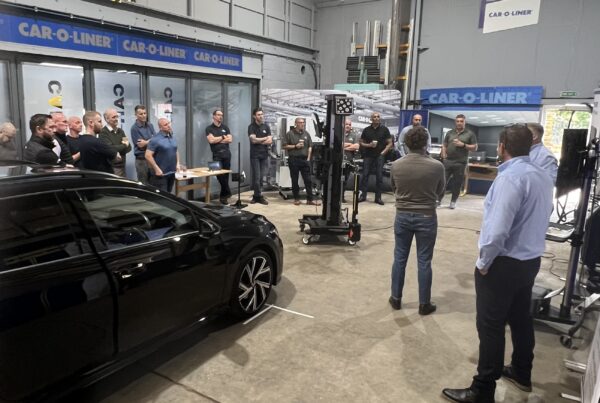
BCA Drivers in Legal Action for National Minimum Wage and Holiday Pay
In an extension of recent litigation surrounding the gig economy, British Car Auctions (BCA) is the latest employer to face a challenge to its employment practices and the classification of its drivers as employees. If successful, this could have significant implications for the motoring sector.
BCA uses drivers to inspect vehicles and deliver them to various destinations across the UK, including customers and its auction hubs. Many of them are classed as self-employed independent contractors, and as such they can’t claim holiday pay or be guaranteed the national minimum wage. Today (16 May 2024) 800 of these drivers joined a group litigation being brought to define these subcontractors as workers. If successful this would entitle these drivers to holiday pay and the national minimum wage.
The claim follows the case of Parker and Others v. BCA Logistics Ltd last May where BCA Logistics told the tribunal that around 1,200 of its 2,100 drivers were self-employed. Employment Judge Jonathan Meichen found that the drivers had no ability to negotiate the terms of their contract, no choice about when they worked and faced punishment if they failed to show up as expected. The judge held that they were “subordinate to and dependent on” BCA for their employment such that they had the status of workers.
“I did not think this was an uncertain, marginal or borderline case,” he wrote. “In my view, the key factual features of the relationship between the parties pointed one way.”
This ruling was upheld by an appeals tribunal in December 2023.
Gabriel Morrison, a senior associate at Leigh Day who is representing the drivers, said the firm is confident that the tribunal will rule that the 800 new drivers are workers, and their pay should reflect this as it did with the 400 other drivers.
Employee, a Self-Employed Contractor, or a Worker?
Under UK law a person can generally be classed as an employee, a self-employed contractor or a worker. Employees have the most employment rights, while self-employed contractors (or ‘freelancers’) have very few. “Workers” are classed within a type of middle way category and enjoy some employment rights. These include the right to receive the national minimum wage, paid holiday, statutory rest breaks, protection from discrimination under the Equality Act 2010 and protection for whistle-blowers under the Public Interest Disclosure Act 1998.
Implications for the Motor Industry?
This has significant implications for businesses utilising significant numbers of self-employed contractors or freelancers. Those who do will need to review the working relationship to ensure that it is truly one of self-employment. Where self-employed contractors or freelancers are deemed in fact to be workers then this will have major financial implications with regards to National Minimum Wages as well as paid holiday entitlement.
How Can I Tell?
The more control one party has over the other, the more likely the weaker party will be a Worker. There is no hard and fast checklist, and every case will be fact-sensitive, but practical considerations may be:
· Does the individual control the hours they work, or are they set by the business?
· Can they send a substitute to work, or are they required to attend in person?
· Can they negotiate the terms of the contract, or are they supplied with set terms?
It will also need to be remembered that even though both sides may agree that the individual will work as a self-employed person, employment status is determined by the reality of the relationship, not what it may purport to be.
In Conclusion
This is the most recent step in a series of cases regarding the gig economy, the highest profile being that brought by Uber drivers in 2021 (Uber & Ors v Aslam & Ors [2021 UKSC]).
Whilst this case hits closer to home, many within the industry would have been advised to review their employment practices in the light of the Uber ruling. If you did so the impact of this case will be reduced.
Whilst any decision will have wider implications for those employing drivers on a subcontracting basis, the fact of the matter is this will be considered on a case-by-case basis and will be decided on the level of control each ‘employer’ exerts over the drivers concerned.
We would advise members to consider carefully their use of sub-contractors and to assess how best these contracts work in practice.
This advice is general in nature and will need to be tailored to any one particular situation. As an RMI member you have access to the RMI Legal advice line, as well as a number of industry experts for your assistance. Should you find yourself in the situation above, contact us at any stage for advice and assistance as appropriate.
Separation Of Waste In Wales
“I run a Petrol Forecourt in Wales. I know that the law has recently changed, and I now must separate out rubbish collected on my site. Some people are telling me that this only applies to waste produced by my site, some people have said it includes waste from goods sold on my site and some people are saying it includes any bins made available to the public?”
In order to support recycling and to reduce waste, in 2023 the Welsh Government passed legislation requiring businesses to separate out their waste. This duty came into force from 6th April this year.
Unfortunately, the wording of the legislation is poorly drafted and difficult to interpret and clearer understanding of much of the detail will only emerge through how the legislation is subsequently enforced.
How was this done?
In its introduction of the new requirements the Welsh Government has either created or amended four different pieces of legislation (and referred to definitions contained within others). The legislation concerned includes:
· The Environmental Protection Act 1990.
· The Waste Separation Requirements (Wales) Regulations 2023.
· The Prohibition on the Incineration, or the Deposit in Landfill, of Specified Waste (Wales) Regulations 2023.
· The Prohibition on Disposal of Food Waste to Sewer (Civil Sanctions) (Wales) Order 2023.
What are my obligations?
From 6th April 2024, it became law for all businesses, charities, and public sector organisations in Wales to start separating their waste for recycling.
“An occupier of premises in Wales who presents controlled waste for collection (whether by a waste collection authority or by any other person) must do so in accordance with any applicable separation requirements.” s45AA (4) of the Environmental Protection Act 1990 states,
The regulations do not differentiate between waste produced by your site or waste from goods sold from your site or waste collected on your site. If you present it for collection; either by the council or by a waste management company, then you are required to separate it out.
What waste needs to be separated?
The recyclable waste streams that need to be separated for collection, collected separately and kept separate after collection, from 6th April 2024 are:
· Food produced by premises producing more than 5kg of food waste a week.
· Paper and card.
· Glass.
· Metals, plastic, cartons and similar items.
· Unsold small waste electrical and electronic equipment (SWEEE).
· Unsold textiles.
In a petrol forecourt you are perhaps unlikely to have waste electrical equipment or textiles, but you will have to monitor the food waste produced both on site and by your customers to ensure either that it is under 5kg a week, or that it is separated.
A body shop, repairing garage or franchised dealer will be less effected by customer waste generally but will still need either to remove bins from customer service areas or separate out any waste produced by their customers, along with separating out their own waste from their site.
All businesses will need to ensure that any small electrical equipment is separated out. This will include household appliances, consumer equipment, equipment reproducing sound or images, electrical and electronic tools, medical devices, monitoring and control instruments or equipment for generation of electric currents.
Whilst this is currently only a legal requirement in Wales, the drive for a circular economy makes it likely that similar regulations will be passed in the rest of the United Kingdom.
This advice is general in nature and will need to be tailored to any one particular situation. As an RMI member you have access to the RMI Legal advice line, as well as a number of industry experts for your assistance. Should you find yourself in the situation above, contact us at any stage for advice and assistance as appropriate.
Further guidance can be found at https://www.gov.wales/changes-workplace-recycling-guidance-workplaces https://www.gov.wales/separated-waste-collections-workplaces#109934
Motor Industry Legal Services
Motor Industry Legal Services provides fully comprehensive legal advice and representation to UK motor retailers for one annual fee. It is the only regulated law firm in the UK which specialises in motor law and motor trade law. MILS currently advises over 1,000 individual
businesses within the sector as well as the Retail Motor Industry Federation (RMI) and its members





